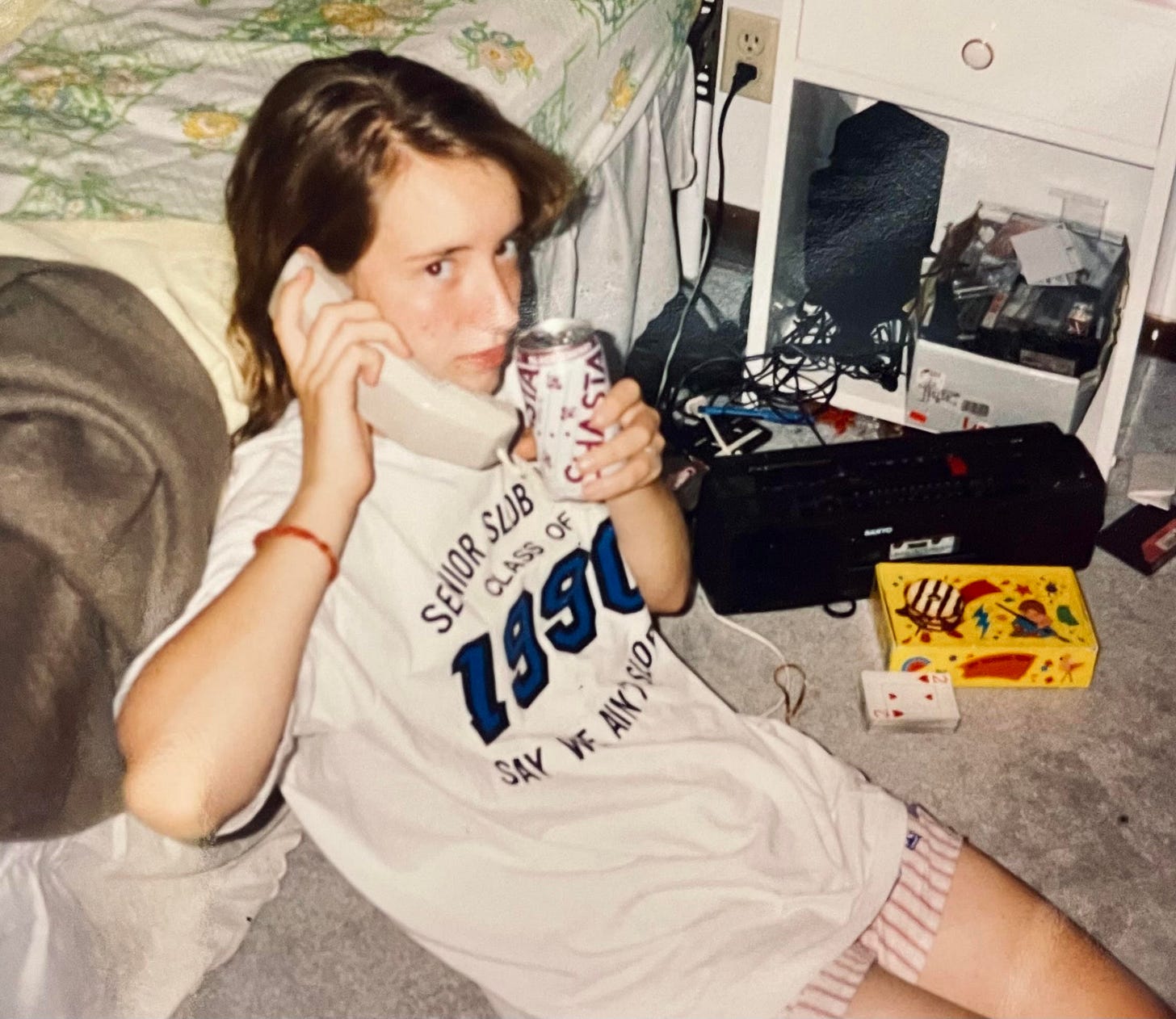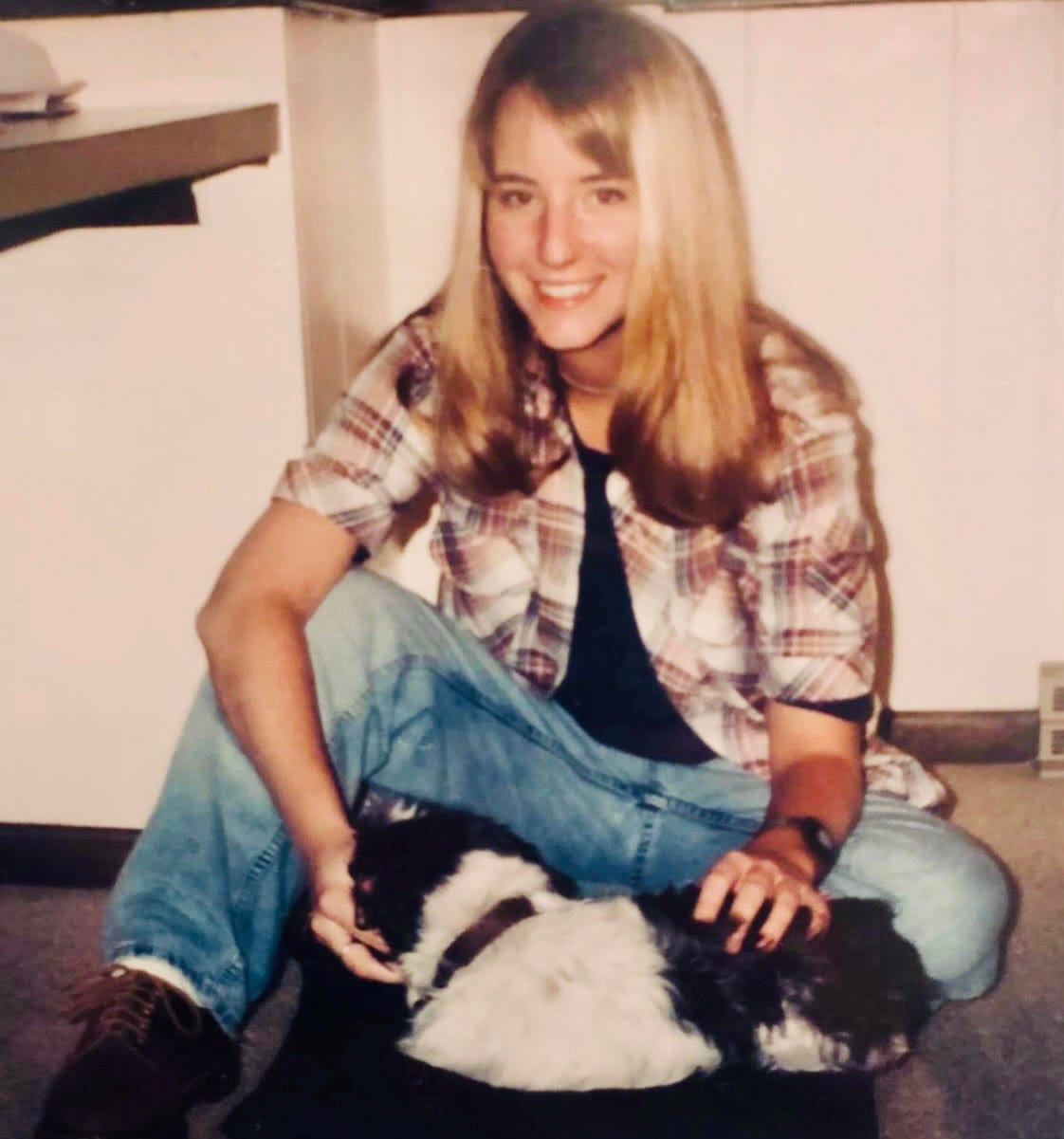“Hello, darkness, my old friend”
My relationship status with music is “It’s complicated.” While I can’t sing or dance or play an instrument despite my attempts with various lessons, the melodies resonate inside me all the same, strumming the darkest corners of my heart and drumming the shadows to the surface.
I've spent much of my life navigating intense emotions and finding it difficult to express them in words. I’ve never possessed the gift of verbal articulation and have always viewed that as a deficit, at times almost feeling mute, bound uncomfortably in silence. Harder still was that the meaning of the emotions themselves was often elusive to me, the feeler.
Music changed that. It began working with me at a very young age, but it’s only been in the last few years that I’ve come to understand its magic.
As soon as I started earning money from chores, I saved my hard-earned dollars to search for new cassette tapes to buy. Each tape was like a mystery-flavored sucker, its taste unknown until I took the first lick.
Hours were spent alone on the floor of my room, playing my favorite songs over and over, manually rewinding again and again. In my child’s mind, I would stop playing the song when the artist started sounding too tired to continue.
During high school, I refined my tastes and would often lie in a messy, candlelit bedroom, listening to my treasured grunge CDs, getting my teenage angst on.
I explored a spectrum of music that spanned classic rock, classical, alternative rock, and grunge. They all seemed to feed a different part of me while I tried to grasp who “me” was.
“In restless dreams, I walked alone”
Being raised in a high-demand religion (The Church of Jesus Christ of Latter-day Saints), I often felt like I had to be careful with what I chose to listen to or face the shame accompanied by not, which I faced willingly. As a pre-teen, I remember hearing a well-known Mormon warning about the dangers of listening to seemingly harmless bands like Air Supply (who I loved at the time).
To me, Air Supply epitomized benign love songs, yet this member presented their music as potentially spiritually harmful. It was perplexing and frustrating as a young person to navigate these often arbitrary standards—where even the gentlest of melodies could be viewed as dangerous.
It wasn’t until I decided to serve a full-time church mission that I began to prepare myself for missionary life in earnest by cleaning up my listening habits. Wanting to show a stronger commitment to the religious tradition I had chosen, I decided to sell or give away many of my “inappropriate” CDs (sorry, Nine Inch Nails).
Once fully immersed in missionary work, I was only listening to church-sanctioned songs, which were beautiful too in their own way but a major departure from my previous listening habits. I found a different type of solace in them. They were the only songs I had.
Toward the end of my 18-month mission, I had a companion who had been in a band back home. She sang beautifully and could play guitar. We both missed secular music, and we decided we would each purchase a guitar. I bought mine with the hope I could learn to play from her (which was kind of crazy considering we only had a portion of one day per week away from church duties, and those precious hours were consumed with grocery shopping, laundry, and writing letters home).
When she played songs by Alison Krauss, I could feel a part of me that had been hibernating yawn to life in the warmth of the sun.
“It's amazing how you can speak right to my heart
Without saying a word, you can light up the dark
Try as I may, I can never explain
What I hear when you don't say a thing”
When I returned home, I was stabbed by the pangs of loss as I found my CD shelves now lacking. I was grateful to listen to music again, but I found myself listening to it less than I had growing up. What music had communicated and helped me understand about myself no longer felt helpful in the context of being a devout Mormon. I had been taught since I was a child that the “natural man” was an enemy to God, and music connected me directly to the parts of myself that I felt would stand naked and ashamed in His eyes.
I was even triggered at times when I later got married and heard my husband play something that reminded me of my less constrained years. I wanted to set a good example for my children, according to the standards someone else had set for me to set for them. Music, a direct link to my intuitive self, on some level, had become the enemy.
Feeling so disconnected from myself in this way became physically unbearable. One time, as I waddled through a parking lot holding my toddler’s hand with one hand and my pregnant belly with my other, a loud pickup truck drove by blasting explicit rap music. Something snapped inside, and I slipped into a blind rage. I whipped around, screaming at the driver to turn it down (he couldn’t hear me).
I later sat in my car, shaking and waiting for my blood to simmer. It was so unlike me to be confrontational or explode like that at a stranger. I didn’t understand my reaction at all at the time, but I tried to laugh it off, assuming it was a cocktail of justified righteous anger and pregnancy hormones.
“Hear my words that I might teach you”
My husband loved music like I did and would bring home new CDs of artists he thought I would enjoy. I’m sure he could see that I was out of balance and needed to reconnect to the faint notes that still resonated deepest within me. When he introduced me to Ray LaMontagne's “Shelter,” I found myself loving it—despite an initial hesitation caused by the album cover's imagery, which I found disturbing.
Reflecting on it now, certain lyrics from “Shelter” strike a deeper chord, highlighting a conflict I was only barely conscious of then:
“Has anybody ever made such a fool outta you
It's hard to believe it
Even as my eyes do see it
The very things that made you live, they're killing you”
Back then, I didn't comprehend the full extent of this dissonance—how the very things that reached the most authentic part of me and gave me life, like music, could also feel like they were pulling me away from my faith.
“And the vision that was planted in my brain”
Just as the sleeping bear can’t stay in her cave forever once the angry pricks of hunger begin, I felt my soul stir again one day as I listened to the cinematic ebbs and flows of “Your Hand in Mine” by Explosions in the Sky (a song and band my brother shared with me a decade earlier) with the car windows down and the backseat stuffed with children as I ran errands.
I let my arm dangle out of the car, lifting my fingers to stroke the breeze. A deep sense of nostalgia took over. A friend recently told me she heard nostalgia defined as “pain from an old wound.”
I was so moved by the storytelling of the lyric-less song of hope and catharsis that a vision of a future me unfolded with complete clarity in my mind’s eye. She was sitting on the edge of a rock with mountains as her picturesque backdrop, her hair gently blowing behind her, and her head tipped back in laughter. She was so carefree and confident, her physical energy reflecting her vibrant spirit.
Glancing at my reflection in the rearview mirror, that’s not who I saw. Peering back at me was someone who had been busy prioritizing the needs of others—through raising children, managing household duties, and performing church service—so much so that my own health and well-being had begun to weigh heavily on me (literally). This long-standing habit of self-neglect had not only affected my physical vitality but had also made me lose touch with the rejuvenating embrace of the natural world around me.
In that moment, “Your Hand in Mine” was more than a song or song title; it was a lifeline to a future where I could grasp the happiness that seemed just out of reach. I wished I could reach forward in time and grab a hold of her hand, pulling her into my timeline or me into hers. The song I was living was starting to sound too tired to continue.
Amidst the daily rhythms of caring for others and fulfilling duties, I had become deaf to the sounds of nature (my intuition) and forgotten to wake for spring. But there it was. In the quiet of my soul, I could hear the birds chirping, their songs a signal of safety and a call to adventure beyond the cave of my own making. Would I listen?
Reflection question: Has a particular piece of art (a song, painting, book, dance, or any other form of artistic expression) ever changed your understanding of yourself or the world around you?
Here’s this week’s musical inspiration:










Listening to Your Hand in Mine as we speak. I never heard the song before. Thank you for sharing it.
Again, what a beautiful heartfelt story Jenn. It's hard for me to grasp how life devoted to a church must be like, but denying music sounds unnecessary cruel. Music is part of our DNA. It speaks to our souls. Happy to read you found that connection with music again.
Looking forward to the next story!
This article is clear and concise, about your journey with music, from finding joy and emotional expression in it as a child, to later feeling conflicted between your faith and personal connection to music. Thank you for reminding me about cassette tapes, you had to be careful not to damage them :-).